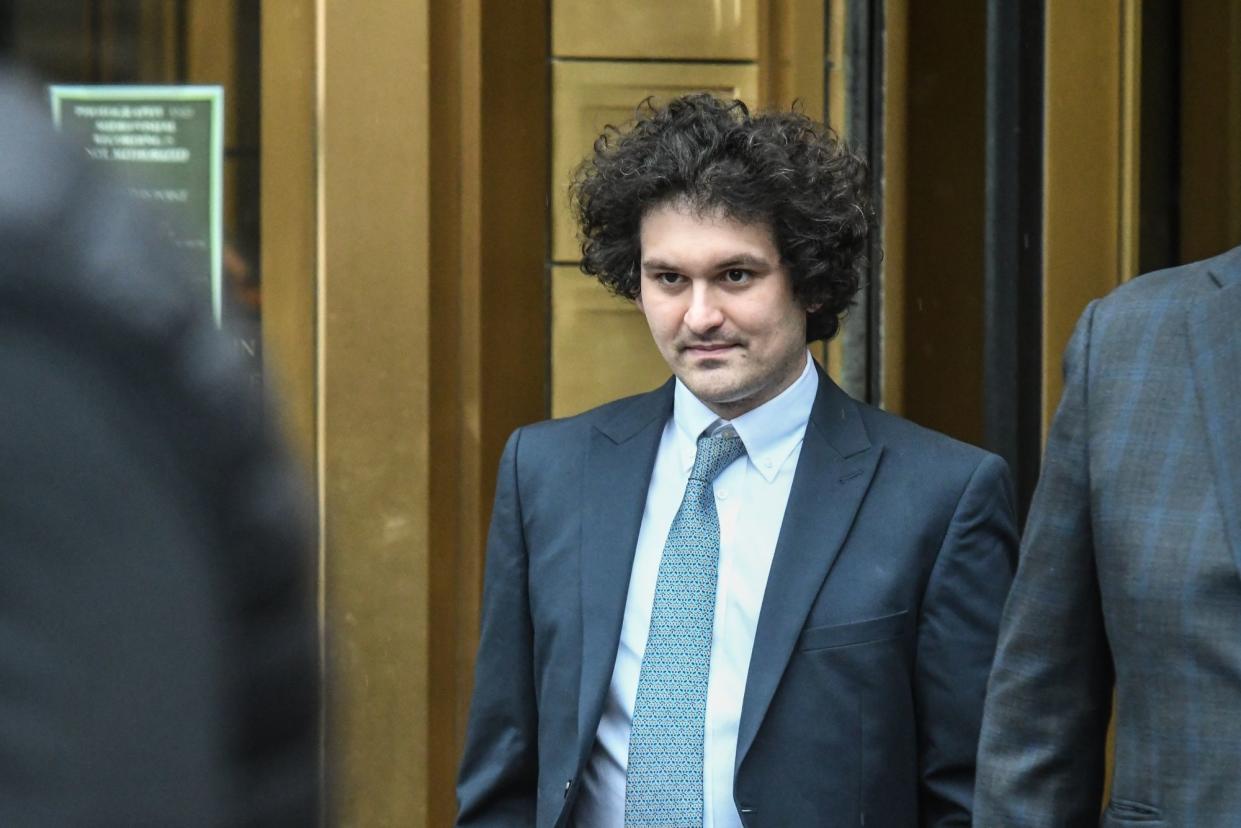Sam Bankman-Fried’s New Bail Rules Require a Security Guard to Screen Visitors

- Oops!Something went wrong.Please try again later.
(Bloomberg) -- Sam Bankman-Fried, accused of a massive fraud at the failed FTX cryptocurrency exchange he founded, will be restricted to using a custom-configured laptop with limited internet access and have a security guard posted at his front door to scan visitors for electronic devices, a federal judge ruled.
Most Read from Bloomberg
US District Judge Lewis A. Kaplan in New York signed off on the extended bail conditions for Bankman-Fried on Tuesday, ending a lengthy negotiation over his access to technology, including encrypted messaging apps.
Bankman-Fried, 31, will be allowed to use a laptop with access to FTX’s internal database via a secure virtual private network connection, according to the order. His attorneys had argued Bankman-Fried, known widely as SBF, needed access to the internet and the database to prepare his defense.
The laptop can access pre-approved websites, including Gmail, Wikipedia, FTX, YouTube, platforms that show crypto asset prices and news sites, according to Kaplan’s order. A technical consultant will monitor Bankman-Fried’s activity on the laptop at least three times per week, the order stipulates.
The judge’s bail order came the same day prosecutors unsealed a new indictment charging Bankman-Fried with making a more than $40 million bribe to a Chinese official to unfreeze frozen crypto assets in 2021. Bankman-Fried has previously pleaded not guilty to eight fraud and campaign finance violation charges. He now faces 13 charges. He is due to be arraigned on the remaining five counts on Thursday.
Read More: Sam Bankman-Fried Charged With Bribing Chinese Officials
Under the new bail conditions, Bankman-Fried’s parents have agreed to bar their son from their own devices and to install monitoring software that can be reviewed by authorities. The former FTX chief is currently living at his parent’s home in Palo Alto, California, while awaiting trial.
The judge has also ordered that a security guard be posted at Bankman-Fried’s house when visitors arrive and to screen any arrivals with a metal detector for electronic devices. Visitors will need to hand over their phones to the security guard.
Bankman-Fried is also prohibited from communicating with former and current employees of FTX and its affiliate Alameda Research, excluding immediate family members. He can’t use encrypted apps, including Signal, or a VPN outside of the conditions specified in the judge’s order. He can use a mobile phone to send texts and make calls, but not a smart phone.
Bankman-Fried landed in hot water with prosecutors when he contacted FTX US’s general counsel Ryne Miller via Signal and used a VPN earlier this year. The FTX co-founder claimed he used the VPN to watch the Superbowl. But it left Kaplan uneasy about his ability to access the internet with technology that obscured his IP address.
Read More: Bankman-Fried Fights for Tech Use as Prosecution Bolsters Case
“What was he doing watching football games on a VPN, if that’s really what he was doing, that anybody could turn on their television set and watch for nothing?” the judge asked Bankman-Fried’s lawyer at a previous bail hearing. His lawyer, Mark Cohen, informed the judge there was no TV at Bankman-Fried’s family home.
The case is US v. Bankman-Fried, 22-cr-673, US District Court, Southern District of New York (Manhattan).
Most Read from Bloomberg Businessweek
China Lent Heavily to Developing Nations. Now It’s Helping Them Manage Their Debt
SVB’s Collapse Shows the World’s Favorite Safe Asset Isn’t Risk-Free
Regulators Are Coming for Crypto, and Even Binance Isn’t Immune
A Polluting Coal Miner Cuts Emissions by Using Methane for Power
©2023 Bloomberg L.P.

